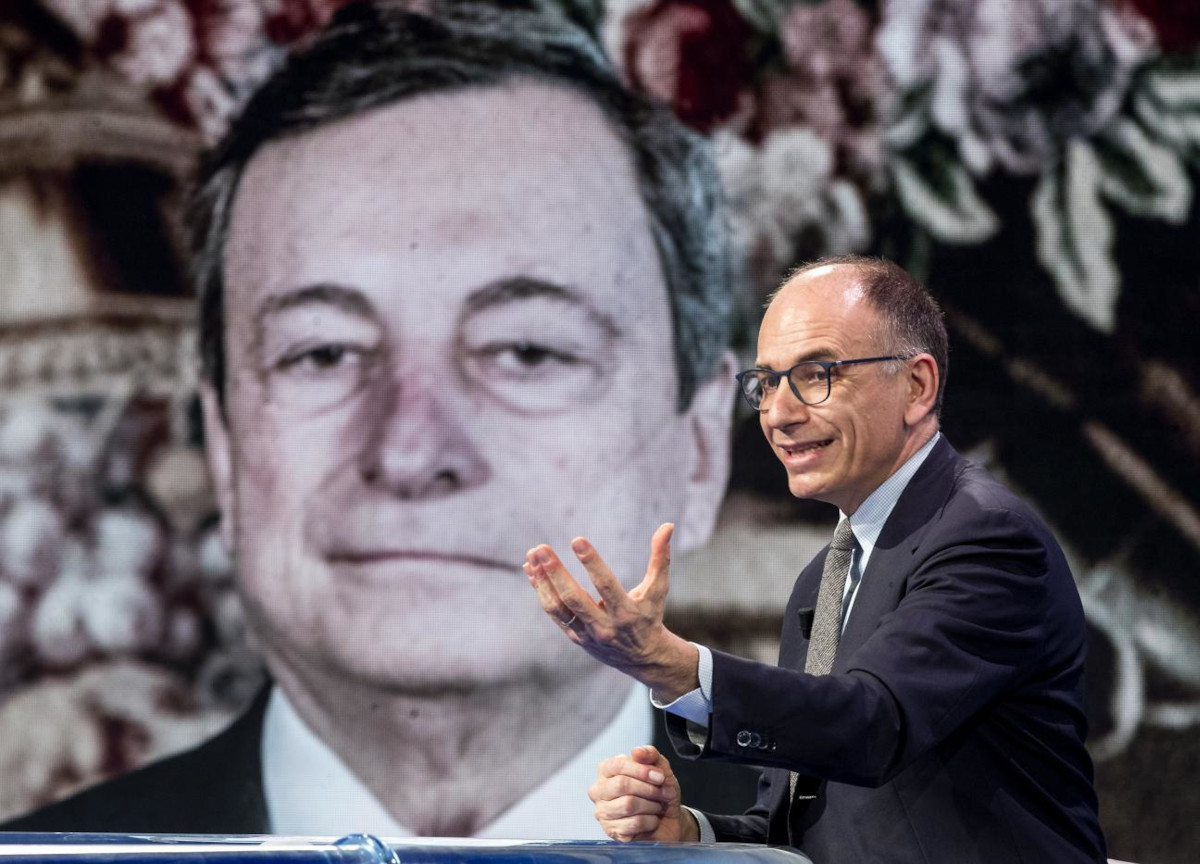With an initiative that aimed to open a public debate in view of the European Parliament electionsa few months ago two authoritative Italian personalities (Marco Buti and Marcello Messori) published a manifesto on things to do in Europe and for Europethen signed by important European exponents.
These were proposals that aimed to relaunch the European internal marketa reform the common EU budget to finance European public goods (also with a new use of common loans), to achieve an authentic industrial policy at European levelto promote public and private investments a support for energy and digital transitionsto complete the banking union and the capital union, to put one in the pipeline common strategy for education and training as a condition for a more competitive economy, and ultimately to achieve an authentic one common foreign and defense policy.
More recently Enrico Letta presented a detailed project to the European Council relaunching the European internal market. Mario Draghihowever, provided some previews of the report on strengthening the competitiveness of the European economy, which he will present after the European Parliament elections. Two somewhat complementary and converging initiatives which aim to identify a strategy aimed at reversing Europe’s economic (and political) decline and which call into question the responsibilities of national governments and common institutions for the definition of a agenda for the next European Union legislature. Two strategies with ambitious objectives, the implementation of which will require courageous and not necessarily consensual choices.
Themes of the electoral campaign in Italy
Well none (or almost none) of these ideas, or other measures which will probably be the subject of discussion during the next European legislature, have so far been the subject of attention in the electoral campaign in Italy. None of those proposals seems to have sparked a minimum of debate in our countryoutside the small circle of insiders or specialists on the subject, if we exclude some speculation on a hypothetical future of Draghi in Europe.
The confrontation between the political forces is therefore developing, according to an already tested script, rather than on the challenges for Europe, on issues – and related controversies – that have little or nothing to do with the future of Europe. From a late recovery of the moral question in politics, to clashes over local disputes, to surreal discussions on the composition of the electoral lists and on questionable candidacies. Or at most around topics distant from the challenges for Europe and by the responsibilities of the European Parliament (and the sensitivities of citizens), such as the contested revision of the form of government, a divisive proposal for differentiated autonomy, or a controversial justice reform.
It is certainly no mystery that the European Parliament elections, this year as on previous occasions, will be played on a dual level. They should therefore constitute aopportunity for discussion between political forces on issues that have to do with the agenda, policies and international position of the EU. But they will inevitably also be a moment of verification of the balance of power between the various parties in their respective national contexts, obviously also within the majority and opposition.
This is because, as it has not so far been possible to reach an agreement on a common electoral law, these elections will take place in each European country according to national rules. And with electoral laws that are generally organized on a proportional basis, with more or less high thresholds, and with more or less large constituencies. With the result that this consultation will be the ideal opportunity for measure the degree of consensus of the various parties, as a sort of large survey, on a European scale, on the representativeness of individual political forces. Consequently, the electoral campaign does not require functional tactical positioning with respect to future hypothetical coalitions to govern (or to form the opposition). Indeed, it presents itself as an unrepeatable opportunity for enhance their respective identity profiles in seeking consensus in their potential electoral areas.
It is therefore in some respects understandable that the conflict between the parties has so far developed over issues substantially extraneous to programs for the future of Europe, with contrasting dynamics that develop, both between the majority and the opposition but also and above all within the respective sides. With the result that the attention of the media and politicians has focused on the choice of candidates and the composition of the lists or at most on the dynamics that may develop around the election of the next president of the Commission.
The need for a vision of the country’s future in Europe and with Europe
Yet never before has the EU found itself facing such a complicated and challenging internal and international context. Never before will Europe be played there as in the coming years prospect of progressive irrelevance in a system of international relations where the logic of the strongest seems to prevail. Europe like never before risks one creeping marginalisation if it fails to reverse the trend on demographics, on competitiveness, on the ability to keep up with its competitors on research, innovation and the development of new technologies. Never before has Europe been asked to contribute to inclusive and sustainable growth with measures that are shared by its citizens.
It is true that it is not easy to mobilize electoral consensus on issues that risk being perceived as abstract, or projected onto apparently remote scenarios. But it is precisely in view of a deadline of this type that we should expect from political class (without distinction between majority and opposition) the ability to have a vision projected into the future. The ability to escape from the logic of all too predictable shop controversies to mobilize voters on a vision of the country’s future in Europe and with Europe.
